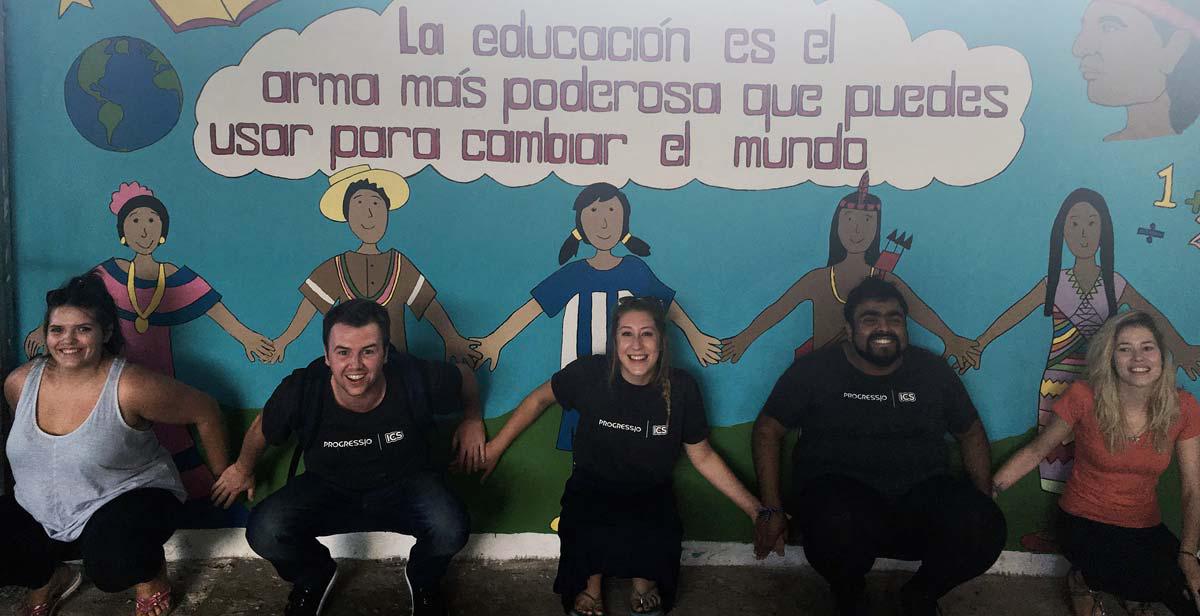My Team Leader, Gagan, propositioned me with a question, “What has impacted you the most since arriving in San Benito?”. The answer was easy, the children’s thirst for knowledge. Even though they have very little, they are some of the happiest children I have ever come across. Part of that, I put down to their want to learn and educate themselves.
The school system here is very different to ours in the UK. Only primary education is compulsory. You start school at the age of six and a half, some pupils may have gone to Kindergarten prior, which is what they call pre-basic. In my school in San Benito, they only have three classrooms but still have the six grades needed. One of the teachers, Professor Jorge, gave me time out of his day to explain how this works. Each of the three classrooms has two grades in. For example, he teaches grades 2 and 5 at the same time. He teaches the younger year first and gets them working, so they don’t get distracted then teaches the older year and gets them working. He then goes back to the younger ones, and so on and so forth. Their system works the best it can for the limited resources they have.
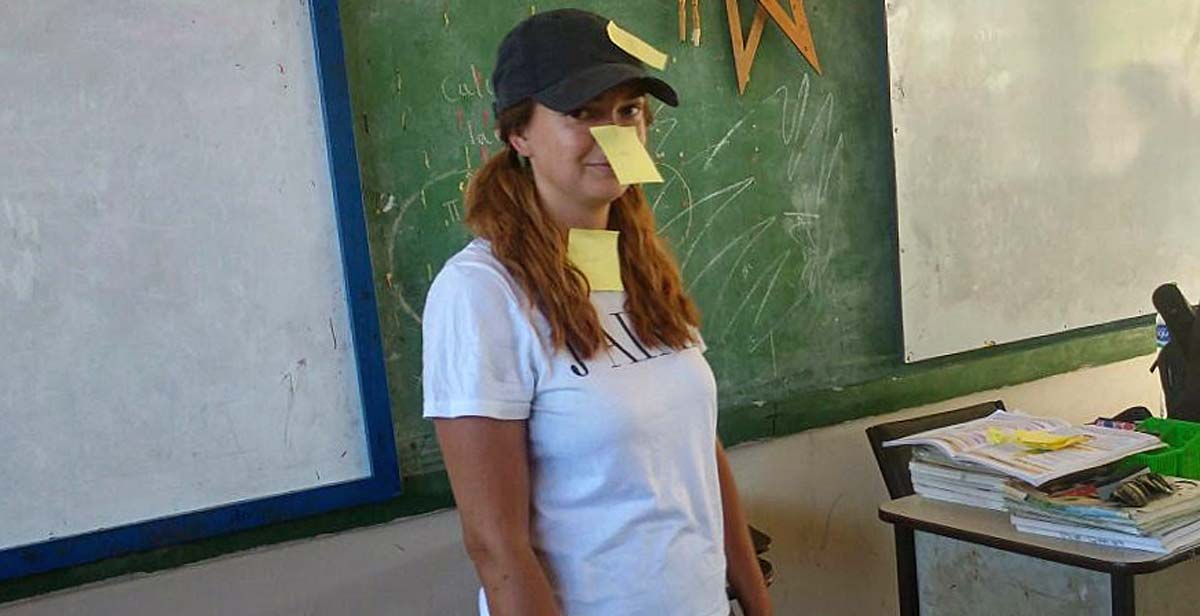
One thing that really struck me about their system was the vast mixes of ages in each year; considering the fact that you usually finish primary school when you’re about twelve, I was surprised to find a few sixteen year olds in grade 6 and a couple of fifteen year olds in grade 4. Professor Jorge enlightened me on the three main reasons this happens. The first common reason is the pupils have moved from a different community and therefore have to re-sit year(s) to gain the needed qualification. The second is for purely educational reasons, the pupil didn’t understand what they’ve learnt that year. Lastly, this is the one that really got to me, economic reasons. The child’s family might be very poor. Their mum and dad might have had to move away for work, leaving the responsibility of the household and any siblings in their hands, so he/she will have to miss school. Considering all these reasons, no matter what age they are, they always walk through the school gates with a smile on their faces, ready to learn.
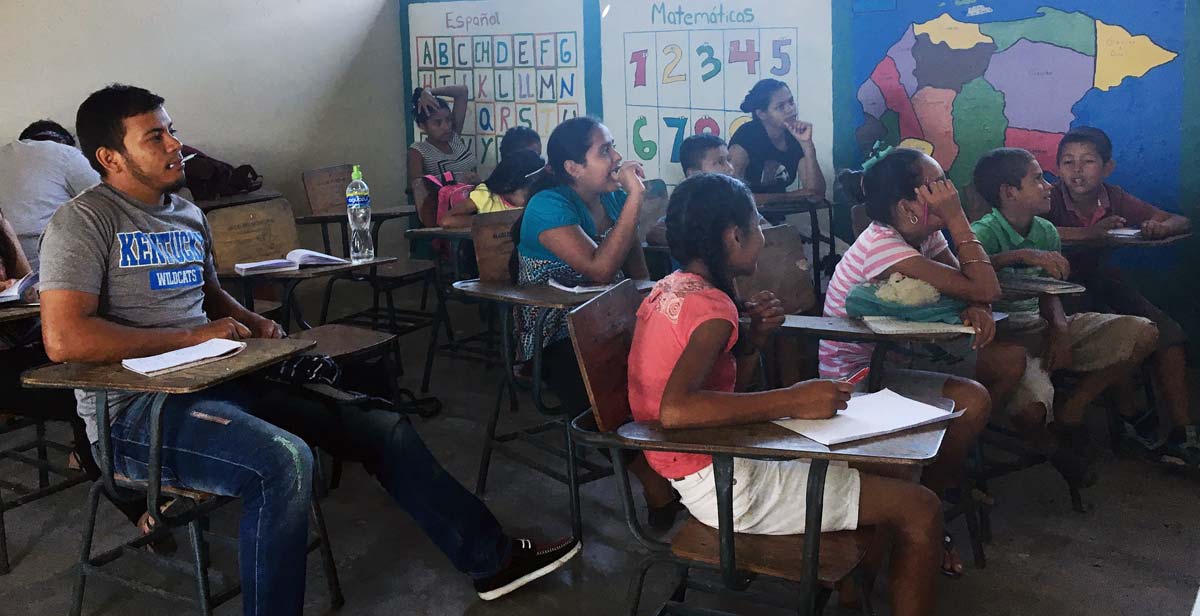
Since being in the school, we as volunteers have had the honour of teaching the children English twice a week. Those same children who I teach in the classes also attend the English club after school. They are giving up their free time to learn and educate themselves, they could be playing outside with their friends but instead they choose to sit in a classroom and learn something new; something they know could better them for the future. The children of San Benito have nothing compared to the children back home, but that will not stop them going anywhere.
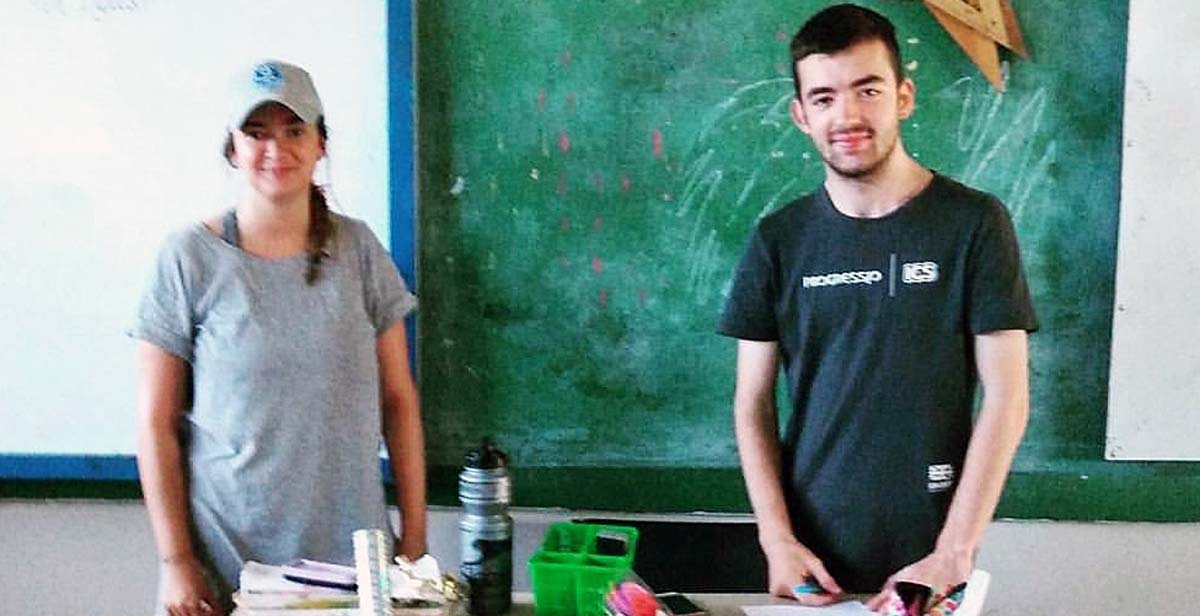
Last Saturday, we arrived at the school for our community English lessons, normally expecting five pupils. We turned up and there were seventeen keenly waiting pupils at the gates. Ten of them being, yes you guessed it, the children who attend the school classes and the club. Ten minutes into the lesson, I just looked around the classroom and felt the deepest emotion. I couldn’t quite believe what I was looking at, seventeen smiling faces eager to gain knowledge.
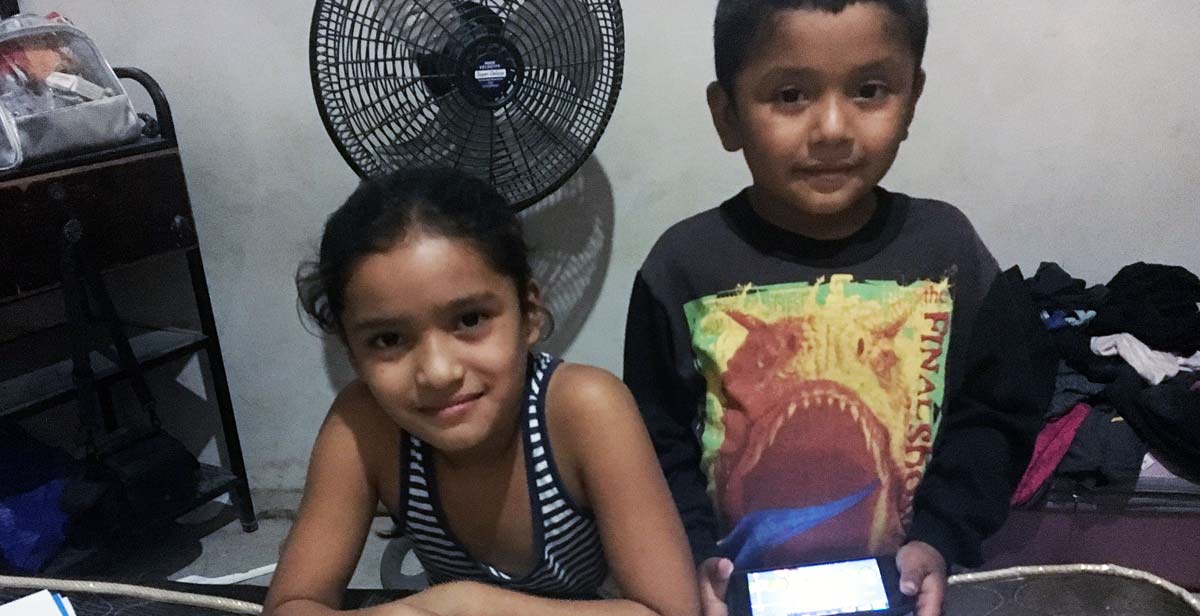
It’s not just the children at the school I have become attached too. I receive visits every night at around 6’o clock from three neighbouring children; their books and pencil cases in their arms ready to learn English. Two girls, Dianne and Nielly, aged nine and ten, and young Samuel, aged five, will be without a doubt waiting for me at the door. Which children back in the UK would give up an hour of their night to learn? Not many. They cling on to your every word and repeat it exactly how you say it, I’ll be having a fair few Honduran kids running around with a scouse accent in no time at all. These kids have started to feel like family to me and their willingness to learn really pulls on my heart strings.
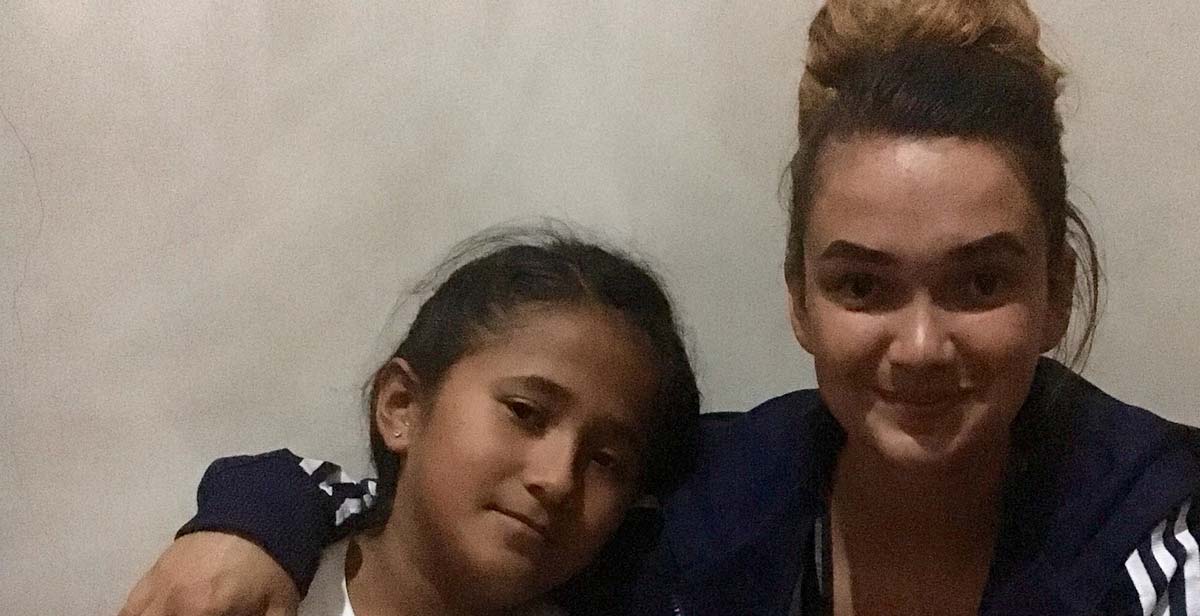
The figure for children going on to High School is at a low 40 per cent. I just hope while I’m here I can be as much of an inspiration as they have been to me and be able to make a difference to even just one child and help them find their drive to fulfill their potential. ‘La educación es el arma más poderosa que puedes usar para cambiar el mundo’- ‘Education is the most powerful weapon you can use to change the world’. I feel if we put everything into our children, the world will be a better place in the future.
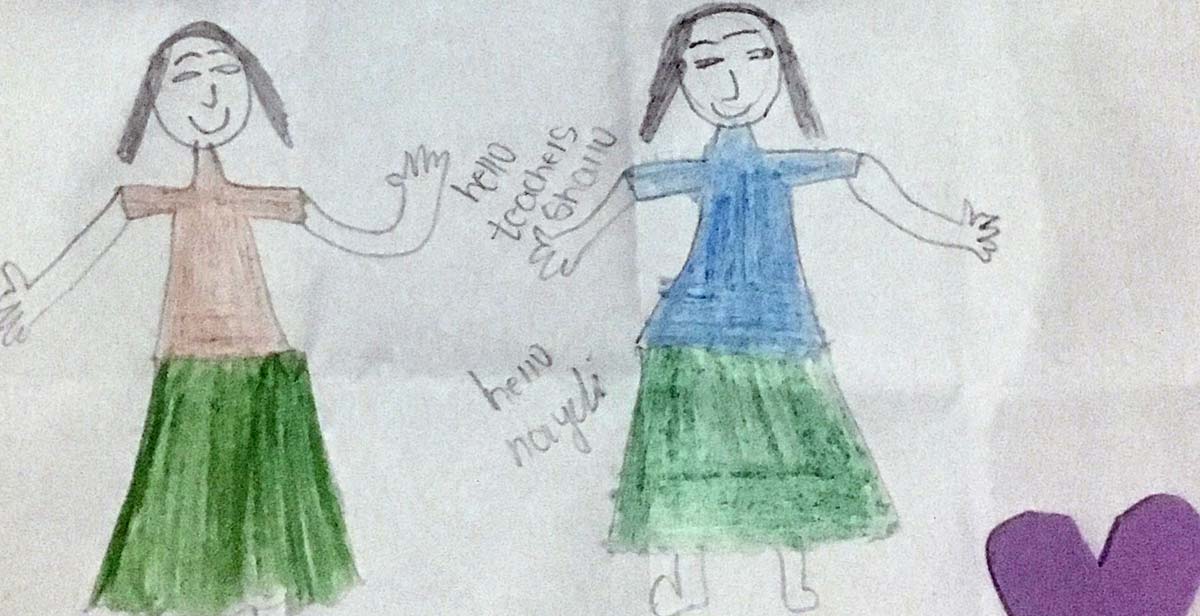
Written by ICS volunteer Charlotte Patterson


